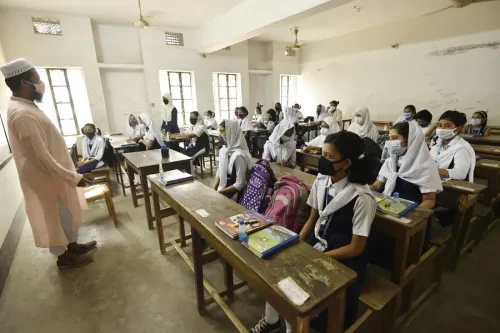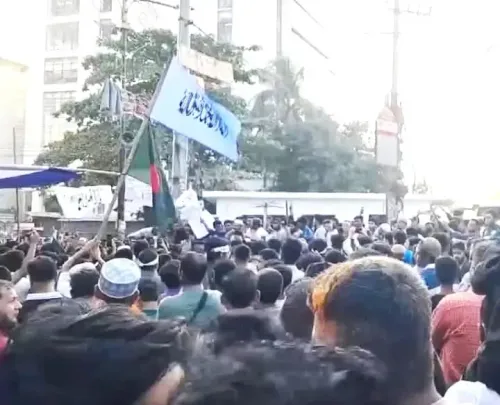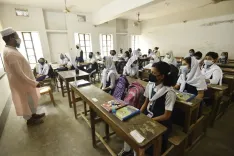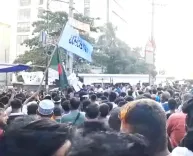How Will the Role of the UN Command Change Amid North Korea-Russia Cooperation?
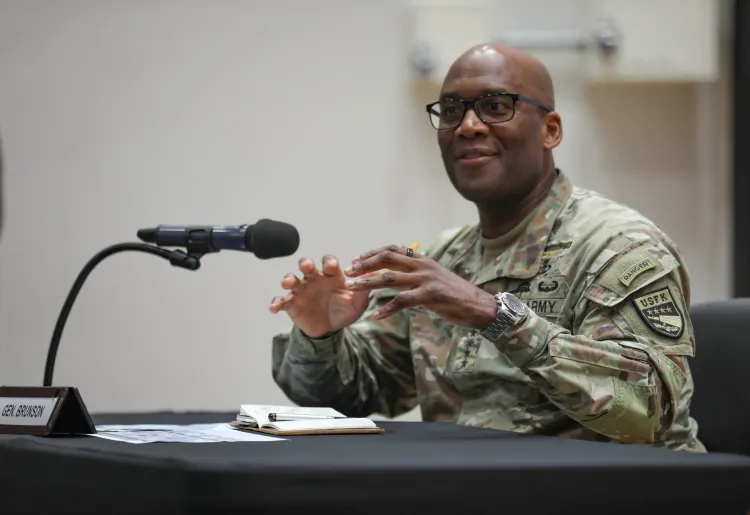
Synopsis
Key Takeaways
- USFK is adapting to changing security dynamics.
- UNC's role is expected to expand with new memberships.
- Military cooperation between North Korea and Russia is intensifying.
- ISR capabilities remain a priority for USFK.
- Closer consultation with ROK is essential for effective defense.
Seoul, Aug 11 (NationPress) The commander of the US Forces Korea (USFK) stated that the role of the US-led multinational UN Command (UNC) will absolutely continue to evolve in response to regional security challenges, including the growing collaboration between North Korea and Russia.
General Xavier Brunson, who also holds positions as the commander of the UNC and the South Korea-US Combined Forces Command, made these remarks as North Korea and Russia have sought to enhance their military partnership through troop and weapon deployments.
"This cooperation is becoming increasingly significant as we observe the DPRK drawing closer to Russia, while security in the Indo-Pacific and Europe becomes more interconnected," Brunson mentioned in a written statement shared with the defense press corps on Monday. DPRK refers to North Korea's official name.
Brunson described UNC member countries as like-minded nations that are dedicated to the enforcement of the Armistice and the broader stability of Northeast Asia, expressing hope for an expansion of their roles and potential new memberships.
Last year, Germany officially joined the UNC as the 18th member state, marking the first expansion of the command in over a decade. Additionally, the Netherlands and New Zealand have recently deployed extra troops, according to reports from Yonhap news agency.
"Will UNC's role continue to evolve? Absolutely -- as the security landscape shifts and member states find innovative ways to contribute," Brunson affirmed. "If there are nations that align with our values, share our commitment, and are prepared to operate within the Armistice framework, we will collaborate with them, always in close consultation with the Republic of Korea (ROK)."
In response to concerns regarding a postponed project by the USFK to construct a drone hangar at Kunsan Air Base—reportedly due to budget reallocations for the Mexico border wall—the USFK commander emphasized his unwavering commitment to intelligence, surveillance, and reconnaissance (ISR) capabilities.
"I recognize the significance of persistent ISR on this Peninsula," Brunson stated, while refraining from delving into budget specifics. "We remain vigilant against threats ... we will stay prepared."
During a press conference with defense reporters on Friday, Brunson underscored the necessity of having the appropriate capabilities when queried about replacing ISR assets deployed to the peninsula.
"There are systems that have departed, and systems that have arrived," he remarked on Friday. "I possess new and enhanced capabilities that we've introduced in partnership with ROK capabilities, enabling us to maintain, if not improve, our visibility compared to the past."
The US Army's new ATHENA-R ISR aircraft was reportedly deployed to the Korean Peninsula earlier this year for a months-long operational assessment.

